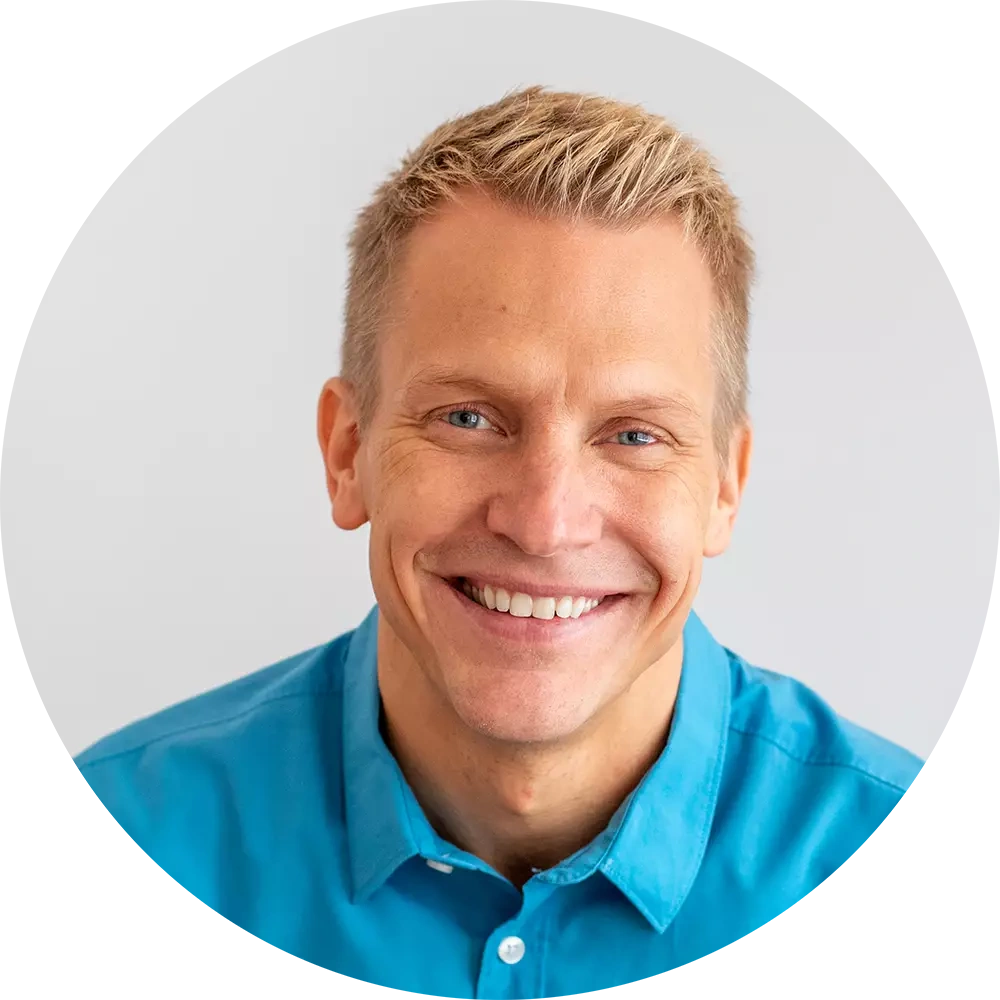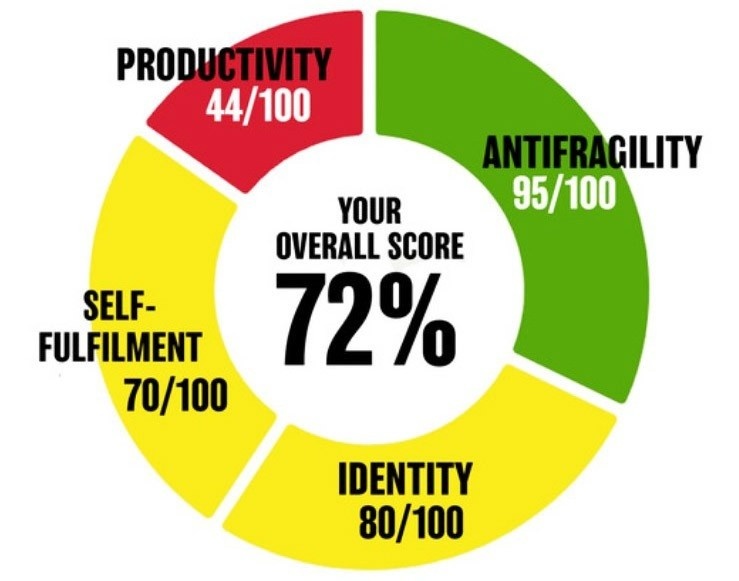How can you improve yourself RIGHT NOW? What does your best self really look like? Tune into today’s video to discover how to design your life to become your greatest self. Learn top tips on how to achieve your most ambitious goals and work through motivational challenges that are holding your back!
KEY POINTS
Stress + Recovery = Growth – Growth occurs through the cycle of stress and rest. Building in rest to your routine is just as important as working through the stress.
Procrastination Is The Enemy Of Success – Reduce likelihood of procrastination by maximizing the value of what you’re pursuing and minimize your impulsivity, or likelihood of being distracted.
Who Forces You To Do Better? – Find yourself an accountability partner. This could be a friend of a colleague or just somebody you trust. Check in with them on a weekly basis. Tell them your goals and keep them updated with how you are progressing.
When The ‘Why’ Is Clear, The ‘How’ Is Easy – Who wants to be working on goals that don’t inspire them. Set goals that you are truly passionate about. Ensure you truly understand why you want to achieve them. That will keep you motivated even through the tough times when it feels easier to give up.
Start New Hobbies! – The act of learning something new, whether it’s a language or learning the guitar, forces you to do things that you are not used to. Let go of the things that have made you who you are today, so that you are open minded to building or adapting to a different version of yourself.
Dreams Don’t Work Unless You Do – Nothing in life comes for free. You can either pay now with the pain of discipline, or pay later with the pain for regret.
TRANSCRIPT
Eric Partaker: Hey, everyone. Pretty much everyone I meet wants to achieve greatness in life, but for whatever reason we get in our own way. And the truth is we’re all capable of great things, but due to our own limiting beliefs or the opinions of others, or lack of action, or a bunch of other reasons, many of us don’t deliver what we’re capable of. My name is Eric Partaker, and I’m here to make sure that you’re not one of those people, so you can reach your full potential, achieve greatness and become the very best version of you. So I hope you enjoy the video.
Speaker 2: Cue point.
Eric Partaker: The number one thing that I want to share with you is this equation for peak performance, that it’s stress plus recovery equals growth. We can’t just keep playing or revving the engine at the highest level possible, keep going around those corners as fast as we can. Eventually, if we do that, if we don’t let our foot off the break at some point, we’re going to blow a tire. The car’s going to flip. Something’s going to happen. But I was just focused on the stress piece and not the recovery piece and so I wasn’t getting true growth.
Think of it another way. If you’re in a gym, for example, and if all you’re going to do is try to lift the largest weight you’ve ever done in your life and that’s your approach to growth, well, you’re probably going to hurt yourself. You may not even complete the repetition. But similarly as well, if your approach is to just pick up a one pound or a one kilo weight, and you’re just going to lift this many, many times with the hope of getting growth, well, you’re not going to get that as well, because you don’t have enough stress in that instance. So it’s the stress plus the recovery that equals growth.
Speaker 2: Cue point.
Eric Partaker: Decrease our likelihood to procrastinate. And how do we do that? Well, we can use a simple tool called the procrastination equation. And in that equation, there’s a couple of things that we want to maximize. We want to maximize the value of whatever it is that we’re pursuing, trying to achieve. And we do that by really taking a moment to understand, well, why would this be valuable? Why am I achieving that? Write that down. What benefits might I get from it? And then we also want to increase our expectancy, our ability to achieve what it is. And we do that by reflecting perhaps on past times where we’ve achieved something similar. It might not be exactly the same thing, but it might be similar in its level of difficulty or the level of challenge that we thought we were facing. Or we might look to others who have achieved what we’re setting out to do already as a source of inspiration, that whatever it is that we’re seeking can be done.
There’s also things that we need to minimize when it comes to procrastination. We need to minimize our impulsivity or our likelihood of being distracted, in other words. And we can do that in several ways. One is by making sure we eliminate distractions. So if we’re working on something, something that will inhibit our adherence or get in the way of us adhering to whatever it is we’re working on is anything that might distract us. So, for example, if we’re trying to write a book and we have Slack open, or notifications open, or social media going off, or we can even see our phone, all of these things could distract us from the course.
Similarly, another thing we need to minimize, to minimize procrastination, is the delay time. And what I simply mean by that is we need to taste success sooner rather than later. So if we’re working against a big goal, but the big goal is, say, publish a book in three years’ time, well, that sounds really, really far away. So how about we break that down, for example, by getting the first draft of chapter one done in month one.
Speaker 2: Cue point.
Eric Partaker: Bring an accountability partner into the mix. This could be a friend or a colleague or somebody who you trust will hold you to account. And what I would suggest you do there is just check in with them on a weekly basis. Tell them how are you progressing on the goal. What are the top few things you’re going to be working on to adhere to the plan in the week coming. And make sure you’re constantly giving them those progress update.
Speaker 2: Cue point.
Eric Partaker: Set goals that inspire you. Who wants to be working on something that doesn’t inspire them? So if you really want to increase your ability to stay focused, set goals that inspire you. Now, I need to caveat this because sometimes when we need to stay focused, it’s not something that inspires us, but we still need to stay focused. And there’s a little hack that you can use in these instances when you absolutely have no choice, you have to get something done, you have to stay focused, but you don’t want to do it. And that’s by just using the language of choice. Tell yourself that you choose to do it rather than you need to do it. Because if you’re in control, if you’re expressing that agency, I choose to do something, then you’ll have a much better chance of sticking with it.
But in all the other instances, when you have the chance to design goals for yourself, design goals that will inspire you and make sure that we’re setting clear goals with deadlines that are broken down so that we know what needs to be achieved by when.
Speaker 2: Cue point.
Eric Partaker: Start new hobbies. And I know this may not sound like a leadership or professional thing to do, but just the act of doing that, the act of learning something new, whether it’s a language or learning to play guitar or learning a new sport, the act of doing that in a safe place that maybe doesn’t relate to your profession starts to make you a bit more adaptable. It forces you to do things that you’re not used to doing. And that’s what we’re trying to do with all of these things. We’re trying to let go of the things that made us who we are today, so that we are open-minded to building or adapting to a different version of us.
Speaker 2: Cue point.
Eric Partaker: Focus on how what you do provides service to others, how it serves the world. Let me give you some examples. Microsoft’s mission at one point was to simply make computers more accessible. Google set out to organize the world’s information. Facebook seeks to bring the world closer. Whereas Elon Musk is focused on the long-term continuity of humanity.
So how are you serving others? What in what you’re doing is of service to others? When we can think of things that go beyond ourselves, that serve others, it allows us to rise to greatness. It allows us to exceed our current level of performance because we’re tapping into something much more powerful. When we’re serving others, we’re tapping into almost like a universal force and energy, something that allows us to play at a much bigger level. And when others see that we’re working on something that isn’t just for our own purpose, that actually does the world some good, they race to support us. They’re more likely to lend a helping hand because they want to be part of that same mission.
Speaker 2: Cue point.
Eric Partaker: The root of discipline is the ability to do the things that you know you should do even if you don’t feel like doing them. And it’s really hard to be disciplined. But I want to make it slightly easier for you. And I want to make it easier for you by talking about the pain of discipline versus the pain of regret. So nothing comes for free in life. Everything requires a payment of some form. And it often can be easy to not do the things that we know we should be doing. And we want to just sit on the sofa and maybe not pursue that project or work against that goal and watch television or a film or something. And it feels great in the moment, but there’s a payment that comes later and that’s that we regret.
We regret that we didn’t do the things that we knew we should have been doing at that time. We regret that we didn’t go to the gym. We regret that we didn’t work on that new business idea. We regret that we didn’t invest more quality time perhaps in our relationships. Versus the pain of discipline, which maybe is a little bit more painful in the moment, the discipline of doing whatever it is that you know you should be doing. But that pain of discipline in the moment usually is far less than the pain of regret later.
So when you’re in that decision point, and you’re wondering, “Should I do this? I’m not sure if I feel like it,” disconnect the need of feeling like having to do it for the reason for doing it. Instead, just take action on it, whether you feel like it or not, knowing that the pain of discipline that you’re experience in that moment right now is far less than the pain of regret. And if you want to become your best at whatever it is that you’re trying to do, you have to make that payment. It doesn’t come for free. But once again, the pain of discipline will be much less than the pain of regret.
Speaker 2: Cue point.
Eric Partaker: Being ambitious gets you to dream. And when you dream, powerful things can happen. When we were building up Skype before we sold it to eBay, one of the things that we dreamed about was that the whole world could talk for free. And that created this revolutionary spirit inside the company. It made us think that we could conquer the world. And sure enough, we did that. We absolutely dominated the space that we operated in and we ended up selling to eBay for billions after achieving a huge chunk of that dream that we had set out for ourselves.




